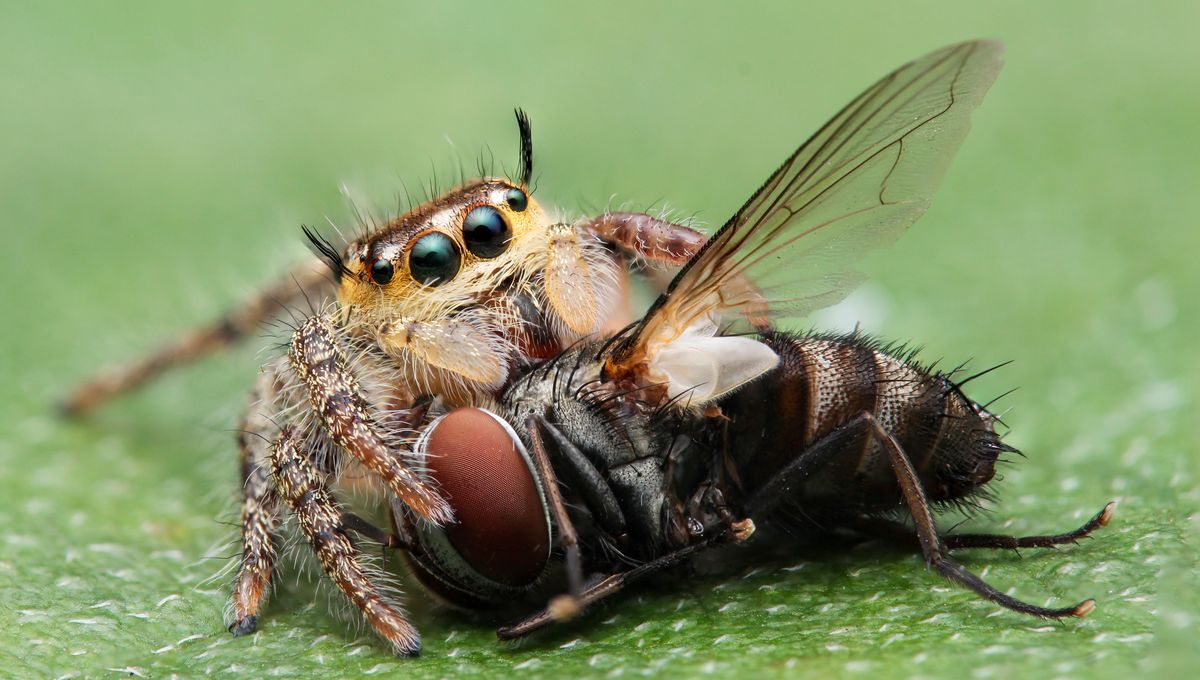
Arachnophobia, the fear of spiders, is one of the most common phobias – even for those without a full-blown fear, these eight-legged beasties still give plenty of people the creeps. But before you reach for a slipper the next time you see one scampering up your bedroom wall, consider this: spiders aren’t out to get you, and here’s why you might want to let them be.
ADVERTISEMENT GO AD FREE
A common myth is that we swallow spiders in our sleep, but rest assured, this has no basis in reality. Spiders have little interest in humans and tend to seek out undisturbed areas. In fact, some research suggests that some spiders enter a sleep-like state themselves and may even experience REM sleep-like states, which could mean they dream – perhaps about devouring your household pests.
Spiders are one of nature’s best pest controllers, with it being estimated that spiders around the world kill between 400-800 million metric tons of prey a year, the vast majority of which being insects and springtails. They feed on common household pests such as flies, mosquitoes, cockroaches, and moths – many of which are far more harmful to humans than spiders. By keeping the insect population in check, spiders help prevent infestations that could otherwise lead to food contamination, allergic reactions, or damage to property.
As well as keeping insect infestations under control, spiders also help maintain local biodiversity. Every animal has a role to play in the ecosystem, and by hunting insects, spiders help regulate populations of bugs that might otherwise become overwhelming. Their presence is an indicator of a healthy environment and removing them can disrupt the natural balance of your home’s micro-ecosystem.
While their spindly legs and fat butts might not be everyone’s cup of tea, the vast majority of spiders are completely harmless to us. Although almost all spiders are venomous, just a fraction of the 50,000-plus species globally pose a threat to humans.
Spiders are solitary creatures that prefer to stay hidden in corners, behind furniture, or in basements. Most will only bite if they feel directly threatened, like if they’re accidentally stepped on or attacked with a slipper. Even then, many spider species don’t even have fangs strong enough to pierce through human skin.
So next time you go to squash that misunderstood beastie, think about how it’s probably scared of you or maybe it’s having a little dreamy snooze – oh and they have tiny, adorable “paws”.
ADVERTISEMENT GO AD FREE
All “explainer” articles are confirmed by fact checkers to be correct at time of publishing. Text, images, and links may be edited, removed, or added to at a later date to keep information current.
Source Link: This Is Why You Should Never Kill Spiders In Your Home